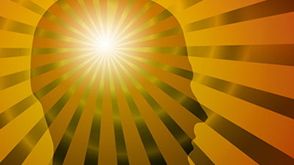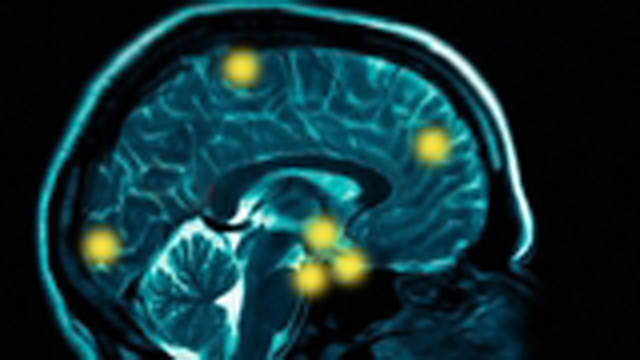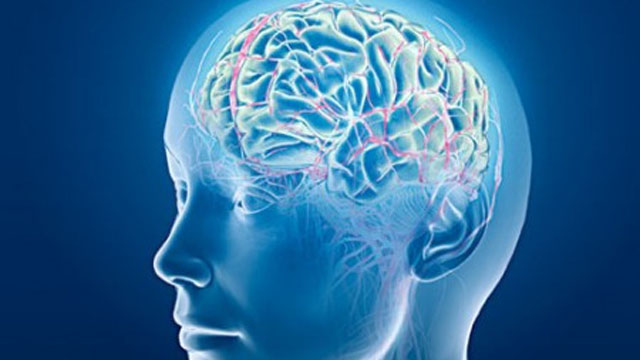Surprising Science
All Stories
It is a cliché that the brain is the “largest sex organ,” but the repetition of the phrase doesn’t make it any less true.
Britain’s two most celebrated scientists have teamed up to discuss all of life’s big issues: the unity of life, ethics, energy, Handel—and the joy of riding a snowmobile.
“What, then, is the problem in people with ADHD? The disorder is really about the allocation of attention, being able to control our mental spotlight.” The Frontal Cortex redefines ADHD.
“Video-games players develop an enhanced sensitivity to what is going on around them and that this may help with activities such as multitasking, driving and reading small print.”
“As we get older we lose the ability to focus on isolated pieces of sensory information. This means adults perceive certain events far more accurately than children can—and vice versa.”
“Are We Heading for a Space Bubble? The supply of new spacecraft, launchers, and spaceports may soon exceed the demand.” Technology Review on the booming private space business.
50 years of widespread use of the pill may have changed the preferences of young women away from masculine-looking men to those with feminine features.
“While eating a varied and balanced diet is the best way to get the micronutrients the body requires, some essential vitamins are difficult to come into contact with naturally.”
“New antenna made of carbon nanotubes could make photovoltaic cells more efficient by concentrating solar energy.” MIT News on where renewable energy and nanotechnology intersect.
“Either you and everyone you love are going to be killed by robots; or you are going to live forever.” A.I. guru Michael Vassar on what future technology has in store for humans.
“If the past is any guide, plenty of today’s science will be discredited in future. There is no reason to think that today’s practitioners are uniquely immune to the misconceptions.”
Why do we listen to someone talking on the phone with more attention than to a conversation where we hear both sides? The Frontal Cortex explains the unavoidable temptation to eavesdrop.
“Subway trains will generate power for the grid with a battery that captures power from the braking trains.” Technology Review reports on energy innovation out of Philadelphia.
“Is cosmology a form of theology for a secular age? Cosmology is so popular, not just because of the science, but because it allows us to ask the big questions. It’s metaphysics by other means.”
Imagine everyone decided to stop producing fossil fuels tomorrow. Global warming thresholds calculated by climate change scientists would not be crossed. Danger lies in future production.
It has been known for some time that religious belief and behavior affect the brain. But can we pinpoint specific chemicals, genes and clusters of neurons that give rise to religiosity, or to atheism?
One orthodoxy has long dominated neuropsychology: the brain controls the mind, which has no independent existence outside of the chemical reactions and patterns which constantly fire inside our brains. Neuro-biologists have long held that the brain exclusively drives the mind, and that the mind serves only the individual self.
“My problem is that consumer technology moves in a single direction: It’s constantly making it easier for us to perceive the content.” Jonah Lehrer laments the rise of e-books.
Dr. Norman Frost of the University of Wisconsin at Madison tells Big Think “drug-testing policies in professional sports are completely illogical.”
While philosophers of yore postulated on human nature, today’s thinkers approach tough questions with the tools of cognitive science. A philosophy professor on ‘experimental philosophy’.
“Heavy drinkers also live longer than abstainers. In other words, consuming disturbingly large amounts of alcohol seems to be better than drinking none at all.” The Frontal Cortex explains why.
What is happening to the neurochemistry of an addict’s brain that makes that person so unable to do without cocaine, heroin, or methamphetamines?
“A genetically engineered strain of Atlantic salmon that’s designed to grow twice as fast as its unaltered cousins may soon be eligible for dinner.” The FDA may soon approve the food.
Traditionally used for military purposes, falling costs in robotics are pushing the technology into hospitals, offices and the home. The technology redefines what it means to ‘be’ in a place.
The New Scientist reports on an old idea, that once out of favor is gaining traction again: the language you speak, while not determining your perceptions, influences your worldview.
“Whenever a prominent scientist [disputes the existence of God], all hell is sure to break loose.” The Economist measures the fallout from physicist Stephen Hawking’s new book.
The director of the National Institute of Health is a Christian who supports accelerating embryonic stem-cell research. The New Yorker profiles the man who draws fire from all sides.
Given a visual illusion with two interpretations, like the duck and the rabbit, our brain will switch between meanings. The phenomenon is an important evolutionary mechanism, say neurologists.
“Is human uniqueness really nothing more than a neurological phenomenon?” A philosopher and author calls neurology’s entry into the human sciences the emergence of ‘neurotrash’.
While diets often prescribe eating right or eating less, The Economist says dieters seek out excuses to cheat. In situations where non-dieters would be content, dieters continue to eat.





